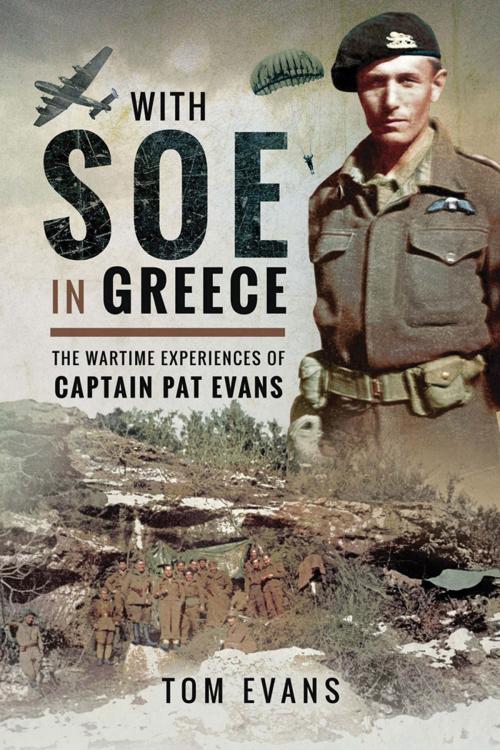With SOE in Greece
The Wartime Experiences of Captain Pat Evans
Nonfiction, History, Military, World War II, Biography & Memoir, Historical| Author: | Tom Evans | ISBN: | 9781526725141 |
| Publisher: | Pen and Sword | Publication: | April 30, 2018 |
| Imprint: | Pen and Sword Military | Language: | English |
| Author: | Tom Evans |
| ISBN: | 9781526725141 |
| Publisher: | Pen and Sword |
| Publication: | April 30, 2018 |
| Imprint: | Pen and Sword Military |
| Language: | English |
Pat Evans parachuted into German-occupied Northern Greece in September 1943. His mission as a SOE operative was to support the Greek resistance movement, carry out sabotage and commando operations and gather military intelligence.
By this time Greece was not only a country ravaged by a brutal occupation but being torn apart by fending political factions on the edge of civil war. Evans had to walk a tight-rope between the Germans, the Communist –directed ELAS, Macedonia irredentists and his own SOE masters in Cairo and Allied High Command.
After the Nazis withdrew in late 1944, he was sent to Northern Greece to try and restore some form of normality amid the chaos of civil war. His success can be measured by the warmth in which the locals still remember him, over 70 years on.
This book draws on a wide range of sources, including SOE and War Cabinet papers but it is Pat Evans’ unpublished letters and reports that give the reader an insight into the challenge that he faced, both operationally and politically.
The result is a thrilling and informative book.
Pat Evans parachuted into German-occupied Northern Greece in September 1943. His mission as a SOE operative was to support the Greek resistance movement, carry out sabotage and commando operations and gather military intelligence.
By this time Greece was not only a country ravaged by a brutal occupation but being torn apart by fending political factions on the edge of civil war. Evans had to walk a tight-rope between the Germans, the Communist –directed ELAS, Macedonia irredentists and his own SOE masters in Cairo and Allied High Command.
After the Nazis withdrew in late 1944, he was sent to Northern Greece to try and restore some form of normality amid the chaos of civil war. His success can be measured by the warmth in which the locals still remember him, over 70 years on.
This book draws on a wide range of sources, including SOE and War Cabinet papers but it is Pat Evans’ unpublished letters and reports that give the reader an insight into the challenge that he faced, both operationally and politically.
The result is a thrilling and informative book.















